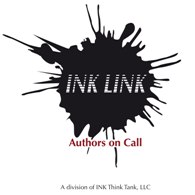Twentieth-century education arose at the time of the industrial revolution. Its purpose was to produce workers for factories — people who could read and write, who got along well with others, and who could follow directions. This short video sums it up quite well.
But times have changed and the skills of the 20th century, which education met most effectively in the 1950s, are still being taught for the most part in the old-fashioned way. It doesn’t work. Recently, I’ve been attending education conferences where many innovators speak about the skills we’ll need for the 21st century. Computer literacy is, of course, a given. But that alone won’t solve the problems. Much of what I heard at these conferences as new is a simply a throwback to the progressive education I was fortunate to receive as a child. (The new buzz word is “project-based learning,” or pbl.) But one noted and impressive educator I’ve come across in my travels, who truly speaks to the future, is Alan November. Here is another short video in which he lays out what he thinks are the three essential skills kids will need for the 21st century.
If you don’t have the time or interest to watch the video, here’s my take on his three skills. First, people will have to know how to process massive amounts of information. This means they have to be able to read critically, pick out the stuff that fits with the problem they have to solve, and synthesize the material into something that has added value for the marketplace they are connected with.
Second, November thinks that people have to be able to work globally — to find people on the planet, not just in their neighborhood, state or even country, who can help them to solve problems.
Third, November believes that the most valuable workers of the future have to be self-directed. They will be able to work without needing a boss. This means that they must be creative enough to figure out what needs to be done and disciplined enough to do the work without having someone looking over their shoulder. (It’s cheaper to hire workers who don’t need managers.)
So now, here’s my question: Who are exemplars of workers who already have these skills? Who are models of disciplined, self-starters, on-going life-long learners, who process massive amounts of information, including material gathered from all over the world, and produce works with added value? Can you guess who they are? (I’m prolonging this, trying to approximate a drum-roll.) It’s (are you ready?) CHILDREN’S NONFICTION AUTHORS!!!!
We each do extensive research; we travel (and email and Skype) the world; and, god knows, we don’t have a regular paycheck so we’ve got to be self-starters. In addition to the knowledge we’ve accrued via the books we write, we can talk from first-hand experience about the acquisition of the subset of skills needed for each of the three overall 21st century skills as stated by Alan November. We can speak about how to locate pertinent information, how to select the most appropriate information, how to honor our sources, etc. Most of us have traveled to other parts of the world in pursuit of what interests us. What skills are involved in working globally with people of different cultures and values? (We can speak to that.) And as to the last skill, the idiosyncratic ways we have each learned in order to trick (manipulate? cajole? threaten?) ourselves into working productively, that could absolutely fill volumes. It’s so highly individualized that I venture we each have something different to say about it. At the very least, we can affirm that work is not relegated to a traditional 9-to-5 workday.
Want to know how we do it? Start asking.
And to help you ask we’re launching something new:

Ink Link: Authors on Call invites you to join us for a series of COMPUTERSIDE CHATS — informal panel discussions via videoconferencing — starting on May 10. This adventure in technology will allow authors and educators to discuss the exciting role that nonfiction literature can play in bringing the joy of learning to your classroom. The videoconferences will be FREE, compliments of our partner SetFocus, which has given us a “virtual room” for our chats. Participants can ask questions via a written chat (#authorsoncall) , and the conversation will continue on our wiki. The room can hold about 40 separate endpoints, which might include anything from individual computers to a room of people with a projector. Together we can create an intimate meeting without the costs or inconvenience of travel. Since space is limited, reservations will be granted via applications ala TED conferences where you can add your own witty comment. If you'd like to join our emailing list, please let me know at: Vicki@inkthinktank.com
The first INK Link Computerside Chat will feature author David Schwartz, literacy expert, Angela Maiers, and moi, Vicki Cobb. The discussion will be Passionate Voices: Science, Math, and 21st-Century Skills.



Leave a comment